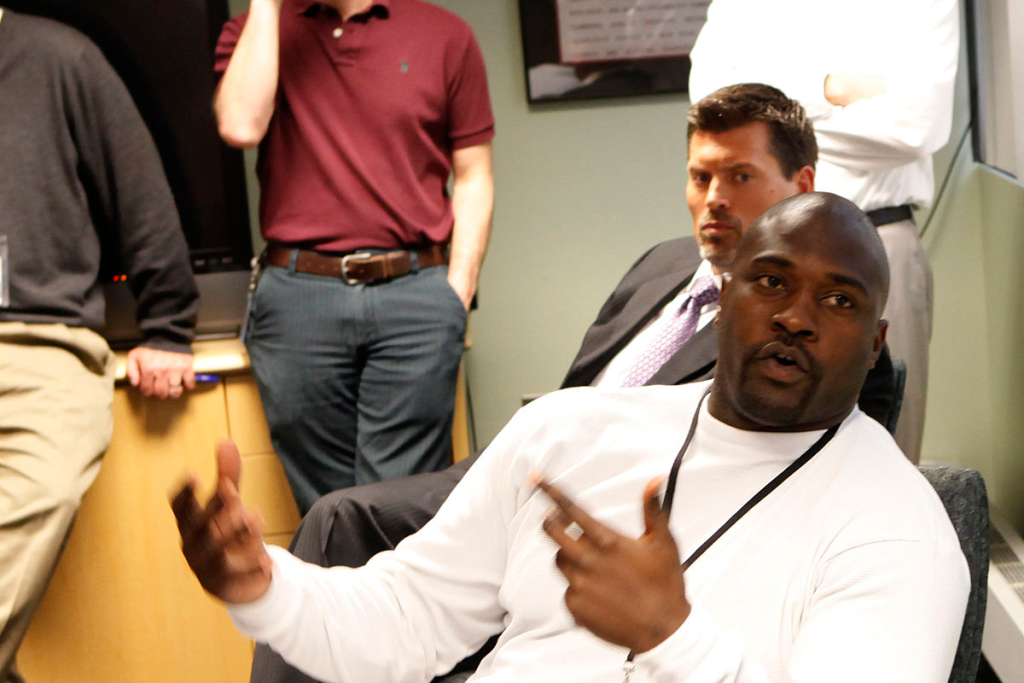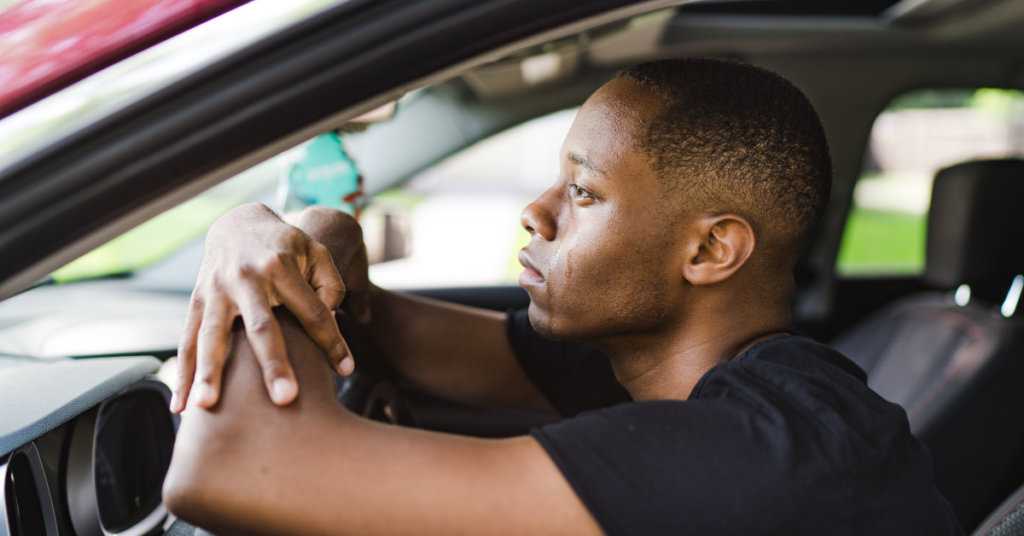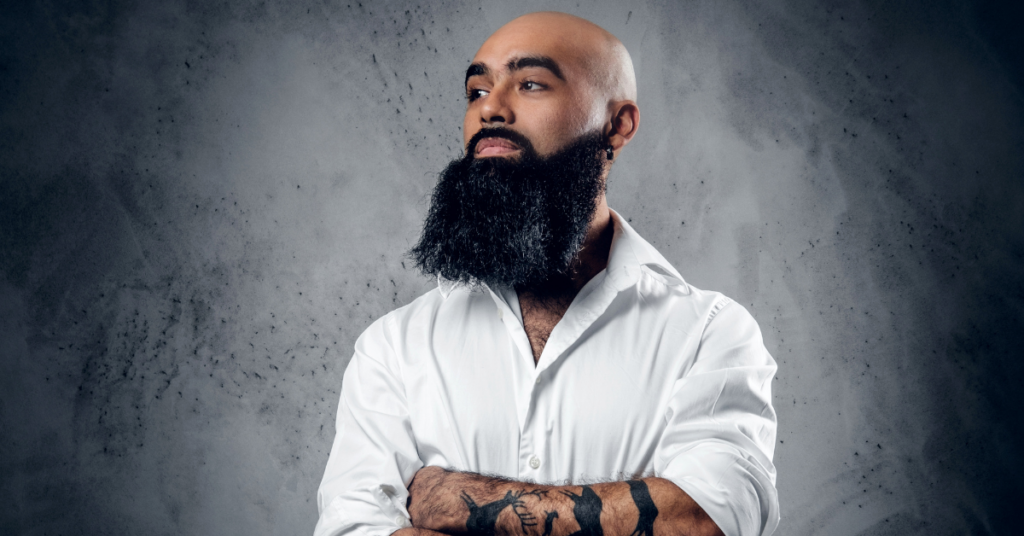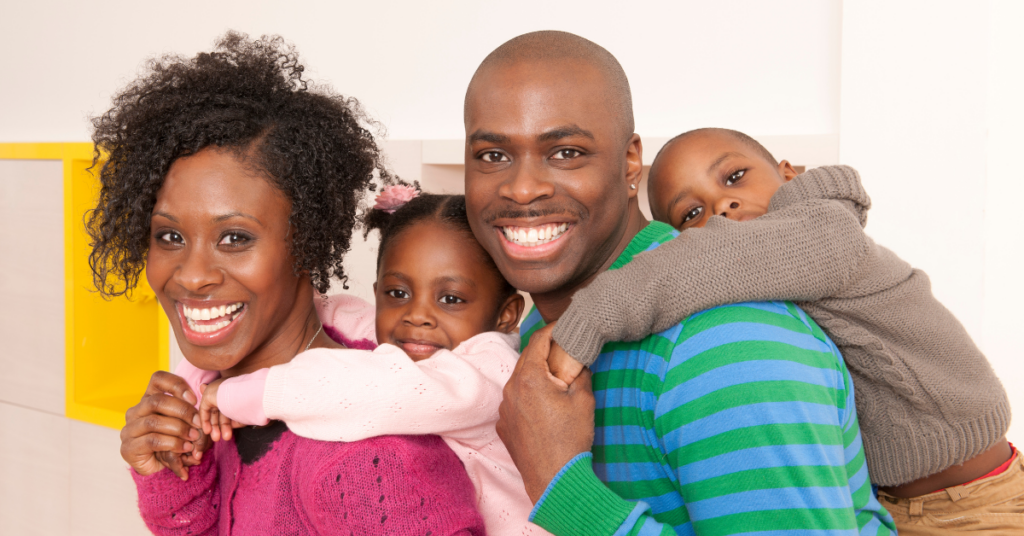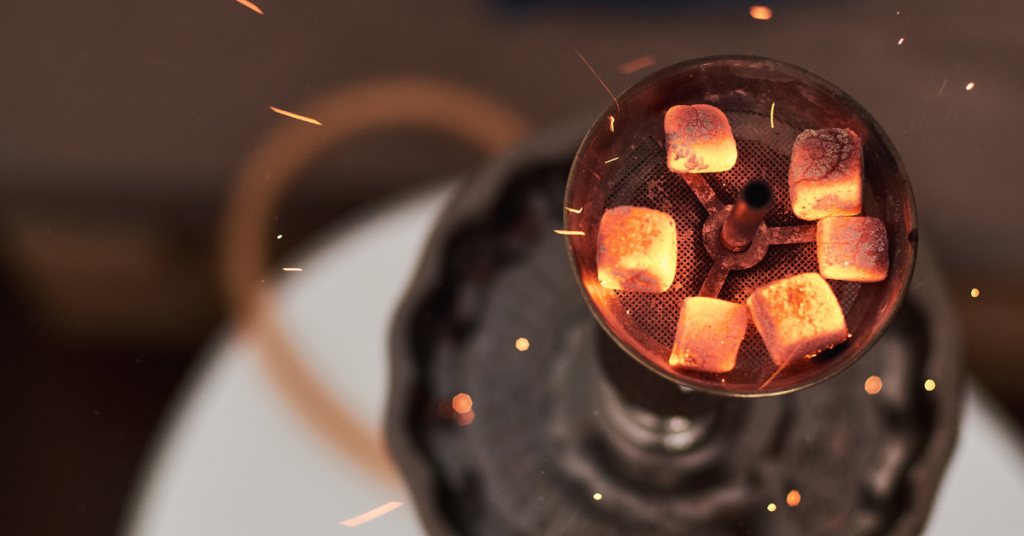I almost regret writing this. I am attacking a black man who recently unleashed his own ill-advised barrage against another black man who is doing the right thing.
The cliché goes that two wrongs don’t make a right. Yet, it feels right to call out this national sports figure over an issue that impacts us all, particularly black men.
Marcellus Wiley, co-host of Fox Sports 1’s “Speak For Yourself” called Atlanta Falcons player Calvin Ridley “mentally weak” for stepping away from football to address his mental health.
Without having knowledge of Ridley’s struggles, Wiley likened the player to a disc jockey with too many inputs. He blamed Ridley for not doing the work to master those inputs, so that the player can “have a pure, harmonious sound” – whatever that means.
More baffling is that Wiley, a former NFL player himself, had a beloved friend and teammate take his own life. He later lamented that his friend never reached out for help.
From that experience alone, you would think he would show more compassion toward Ridley and Philadelphia Eagles lineman Lane Johnson for prioritizing their mental health over their jobs.
While Ridley did not disclose his condition, Johnson revealed for the first time how depression and anxiety disordered his life even as a multimillionaire professional athlete.
“It feels like doom, I just want to run away and not come back kind of thing,” Johnson said, who revealed his battle with depression and anxiety for the first time in this television interview – on the same network that hosts Wiley’s show.
“It was a lot of nausea, a lot of throwing up everyday,” he added, detailing the times where he would throw up blood and his hands would shake.
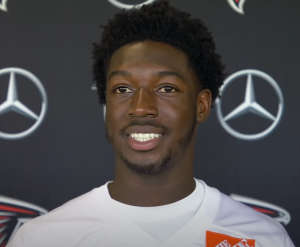
“I was living in hell a long time.”
Given the issues men have in getting help for mental disorders, how much more productive would it have been for Wiley to promote a pro-treatment message given his personal experience. How much more transformative would it have been to let men know that feeling helpless does not mean they are weak.
That stigma is why all men, especially black men, don’t get the help they need.
According to the U.S. Department of Health and Human Services, about 26% of Black and Hispanic men ages 18 to 44 who experienced feelings of anxiety or depression daily were believed to have used mental health services. That’s compared to the estimated 45% of White men with those same feelings.
https://twitter.com/marcelluswiley/status/1455344746293985283?s=20
Yet, seeing the above clip of Wiley casting blame on players for contributing to their own “injury” would make you think the he had not an inkling about the mental health issues we all endure.
Like the rest of us, he possesses intimate knowledge and insight.
***
Marcellus Wiley’s friend was Junior Seau, an athletic marvel born to play linebacker in the NFL.
At the time Seau was drafted No. 5 overall in the 1990 NFL Draft, depictions of his athletic gifts were almost mythic but powerfully evident.
As this 1993 Washington Post article attests, at 6-3, 250 pounds, Seau could run a 4.5 40-yard dash and bench press nearly 500 pounds – freakish metrics for a man his size.
That athleticism seamlessly translated to the football field, where, in 20 seasons, Seau was selected to 12 Pro Bowls and six first-team All-Pro teams. Because of those accomplishments, a generation of football players, including Wiley, grew up idolizing him.
It seemed as if Seau was destined to spend the rest of his days enjoying a lifestyle accorded to Hall of Fame-bound NFL athletes: a post-retirement career of broadcasting gigs, regional or national TV commercials, and a string of restaurants bearing his name.
But that visage was shattered in 2010 when Seau drove his Cadillac SUV off a cliff in Southern California hours after being arrested on suspicion of domestic violence. Miraculously, he escaped with only minor injuries. At the time, police reported that he fell asleep at the wheel. Seau reportedly admitted later that it was a suicide attempt.
Then, about 18 months later, he went through with it. Seau’s girlfriend found him in a bedroom with a gunshot wound to the chest, a revolver at his side, and no note.
A study revealed that he had chronic traumatic encephalopathy or CTE, the degenerative brain injury suffered by scores of former NFL players, a condition whose symptoms include depression, anxiety, dementia, and memory loss. What he suffered from was beyond the pale of a mental health condition.
Six years and five months after his death, Seau’s family reached a confidential settlement with the NFL over a wrongful death suit.
After his friend’s death Wiley wept while trying his best to push through an ESPN television interview. At one point, he remembered questioning Seau after he drove his car off the cliff.
“Junior, be real with me, I’m your boy,” Wiley told ESPN. “Tell me you just fell asleep.”
At the time, Seau didn’t share with him that he intended to commit suicide.
“Junior, didn’t tell me anything that showed any cries for help,” Wiley said.
Between the sobs, Wiley added, “We were there for you, man. We knew you were a superstar. We knew you were a super person. Come out and tell us you needed us.”
***
Given that harrowing experience and the fact that Wiley admitted via Twitter that he himself been in therapy for 25-plus years, you would think he would use his platform to amplify the need for men to be open and proactive about addressing their mental health.
https://twitter.com/marcelluswiley/status/1456442702032035843?s=20
But that wasn’t the case.
Ultimately, it was a missed opportunity to illuminate how the struggles of these athletes connect with our very own.
As Kevin Love put it so eloquently in this 2018 Players’ Tribune article, “Mental health is an invisible thing, but it touches all of us at some point or another. It’s part of life.”
Wiley’s unfortunate critique only obscures that message, creating shame around an issue that should be free of stigma because it is so universally felt.
If only Wiley and others championed athletes like Naomi Osaka, Kevin Love, DeMar DeRozan, and Lane Johnson for being honest about their mental health struggles, then perhaps less people would have to suffer in silence out of fear of being judged.
Perhaps their loved ones won’t have to experience the magnitude of their suffering only after they have passed on.


